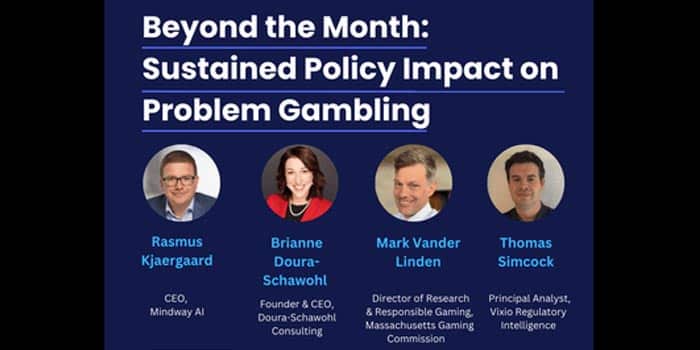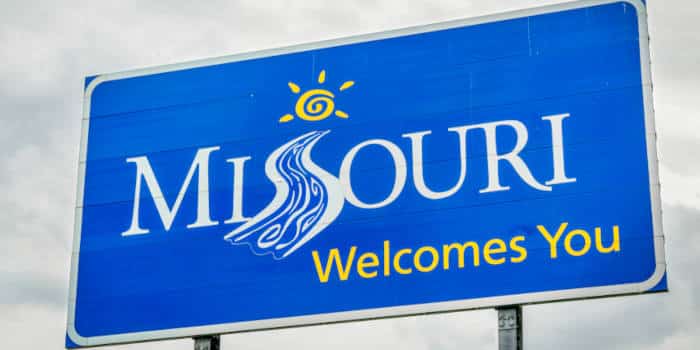Fact-checked by Angel Hristov
Mindway AI Webinar Explores Issues with Problem Gambling
“Beyond the Month: Sustained Policy Impact on Problem Gambling” webinar agreed that defining the problems is becoming increasingly crucial as the gaming sector in the US continues to expand.

The “Beyond the Month: Sustained Policy Impact on Problem Gambling” webinar, sponsored by Midway AI, discussed the gaming industry’s problem gambling landscape and potential solutions.
Experts Outline Gaming Industry Issues
According to the panelists, there is no single answer to addressing problem gambling. The issues start with trying to define harmful gambling behavior clearly. Mindway AI CEO Rasmus Kjaergaard explained that this is different depending on where you look.
However, defining the problems is becoming increasingly crucial as the gaming sector in the US continues to expand. But according to moderator Brianne Doura-Schawohl, a responsible gaming expert who runs a consulting firm, some industry stakeholders believe that measures designed to prevent harmful gambling habits are undermining the sustainability of players or business models.
According to Thomas Simcock, principal analyst at Vixio Regulatory Intelligence, mental health is another significant issue affecting individuals with gambling problems. Simcock noted that the majority of problem gamblers also experience mental health disorders. Viewing the issue solely through the lens of gambling, he explained, overlooks a critical aspect of the problem. A comprehensive public health approach is necessary, especially when mental health disorders contribute to the development of problem gambling.
Simcock also shed light on the importance of further educating the public on unregulated markets. According to him, unregulated operators typically lack responsible gaming programs and do not support individuals with gambling problems.
What Can be Done?
While some experts outlined that there is resistance in the industry to implementing more regulations to prevent harmful gambling behavior, others noted that there are many voices that support responsible gaming efforts. Massachusetts Gaming Commission’s director of research and responsible gaming, Mark Vander Linden, noted that a commissioner once told him that problem gamblers have to be removed from casinos, but that may not always be the universal view on things.
He also talked about the fact that his key interest is that people should be taken care of, but also said that there’s gaming revenue and there are taxes that come from it. He related this to sustainability and the business model. From one perspective, the moment an individual joins a voluntary self-exclusion list, they are no longer an active gambler. On the other side of the sustainability issue are those who feel comfortable with their gambling behavior and the amount they spend, highlighting a different dimension of sustainable engagement. Linden said that both perspectives are valid, but the priority is ensuring that individuals receive the care and support they need.
In addition, Kjaergaard suggested that responsible gambling programs should be regarded similarly to safety features like anti-crash systems in airplanes or lane-keeping assistance in cars. While most gambling customers may never rely on them, these programs offer essential support for those who do need help.
Meanwhile, on the topic of unlicensed gambling operators, Simcock suggested that the most effective way to prevent individuals from turning to unlicensed operators is to stop them from going there in the first place. By keeping regulated operators appealing, the industry can avoid the concern that stricter measures might drive customers toward unregulated markets. This could be done through proactive approaches to identifying problematic gambling behavior and supporting at-risk players.
Stefan Velikov is an accomplished iGaming writer and journalist specializing in esports, regulatory developments, and industry innovations. With over five years of extensive writing experience, he has contributed to various publications, continuously refining his craft and expertise in the field.

















